
Top 14 Kinds of Fish You Should Never Eat
Top 14 Kinds of Fish You Should Never Eat
Fish is often hailed as a healthy protein source, packed with essential omega-3 fatty acids, vitamins, and minerals. However, not all fish are created equal, and some may pose significant risks to your health. Whether due to contamination, overfishing, or their role in the ecosystem, certain types of fish should be avoided. In this article, we’ll explore the top 14 kinds of fish you should never eat and the reasons why.
1. Shark
Sharks are high on the list due to their high mercury content. Being apex predators, they accumulate mercury in their bodies from the smaller fish they consume. Eating shark can lead to mercury poisoning, which can affect the nervous system, especially in pregnant women and young children.
2. Tilefish

Tilefish, especially the variety caught in the Gulf of Mexico, is known for having dangerously high levels of mercury. Consuming tilefish can lead to neurological damage over time, making it a risky choice, particularly for pregnant women and children.
3. Swordfish
Swordfish is another fish that often contains high levels of mercury due to its position at the top of the food chain. Consuming swordfish regularly can result in mercury poisoning, which can lead to serious health issues like memory loss and cognitive decline.
4. King Mackerel
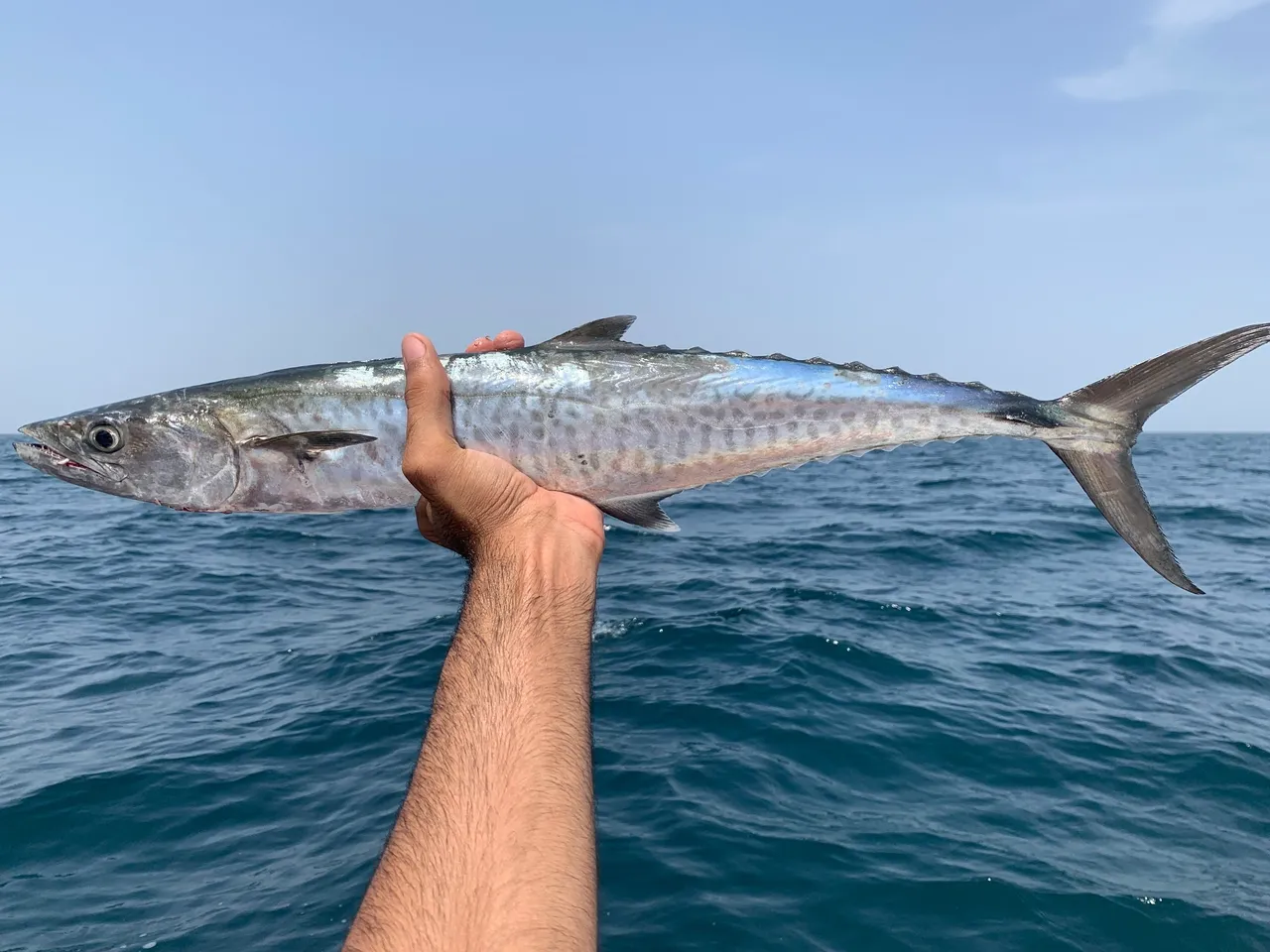
King mackerel is known for its high mercury levels, which can cause long-term health problems. It's best to avoid eating king mackerel, particularly for pregnant women, young children, and people with compromised immune systems.
5. Chilean Sea Bass
While delicious, the Chilean sea bass is overfished and its population has been severely depleted. Overfishing can disrupt marine ecosystems, so choosing more sustainable alternatives is essential. Additionally, it can contain high levels of mercury.
6. Atlantic Cod
The Atlantic cod population has been significantly reduced due to overfishing. This fish is also an endangered species in many areas, making it unethical to consume. Overfishing causes damage to ecosystems and hinders the recovery of fish populations.
7. Orange Roughy
Orange roughy is a deep-sea fish that is particularly vulnerable to overfishing. It takes a long time for orange roughy to reach maturity, making it difficult for the species to replenish. For environmental reasons, it’s best to avoid consuming orange roughy.
8. Bluefin Tuna
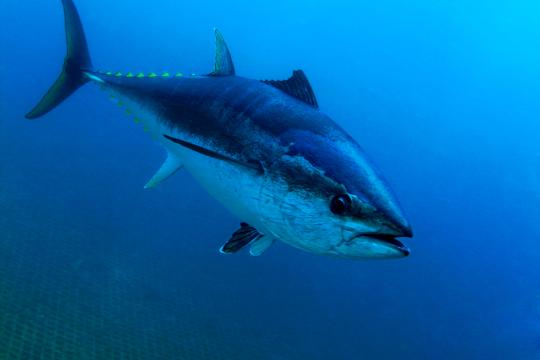
Bluefin tuna is highly prized for sushi and sashimi, but it is also critically endangered due to overfishing. The species is being hunted to extinction, and its depletion could have a significant impact on marine ecosystems. Consuming bluefin tuna contributes to this issue, so it’s best to avoid it.
9. Farmed Salmon
Farmed salmon may seem like a more sustainable choice, but it often contains harmful chemicals, antibiotics, and pesticides. Additionally, farmed salmon is typically high in unhealthy fats. Wild-caught salmon is a better option if you're looking for a healthier and more sustainable choice.
10. Barramundi
While barramundi is often touted as a sustainable fish, farmed varieties can be raised in environmentally damaging conditions. In some cases, these fish are treated with antibiotics, and the practice can lead to water pollution. If you choose barramundi, make sure it’s sourced from responsible, sustainable farms.
11. Bigeye Tuna
Bigeye tuna is another type of tuna that is overfished and often caught using unsustainable practices. The depletion of bigeye tuna populations has contributed to the collapse of marine ecosystems, making it a fish you should avoid eating.
12. Piranha
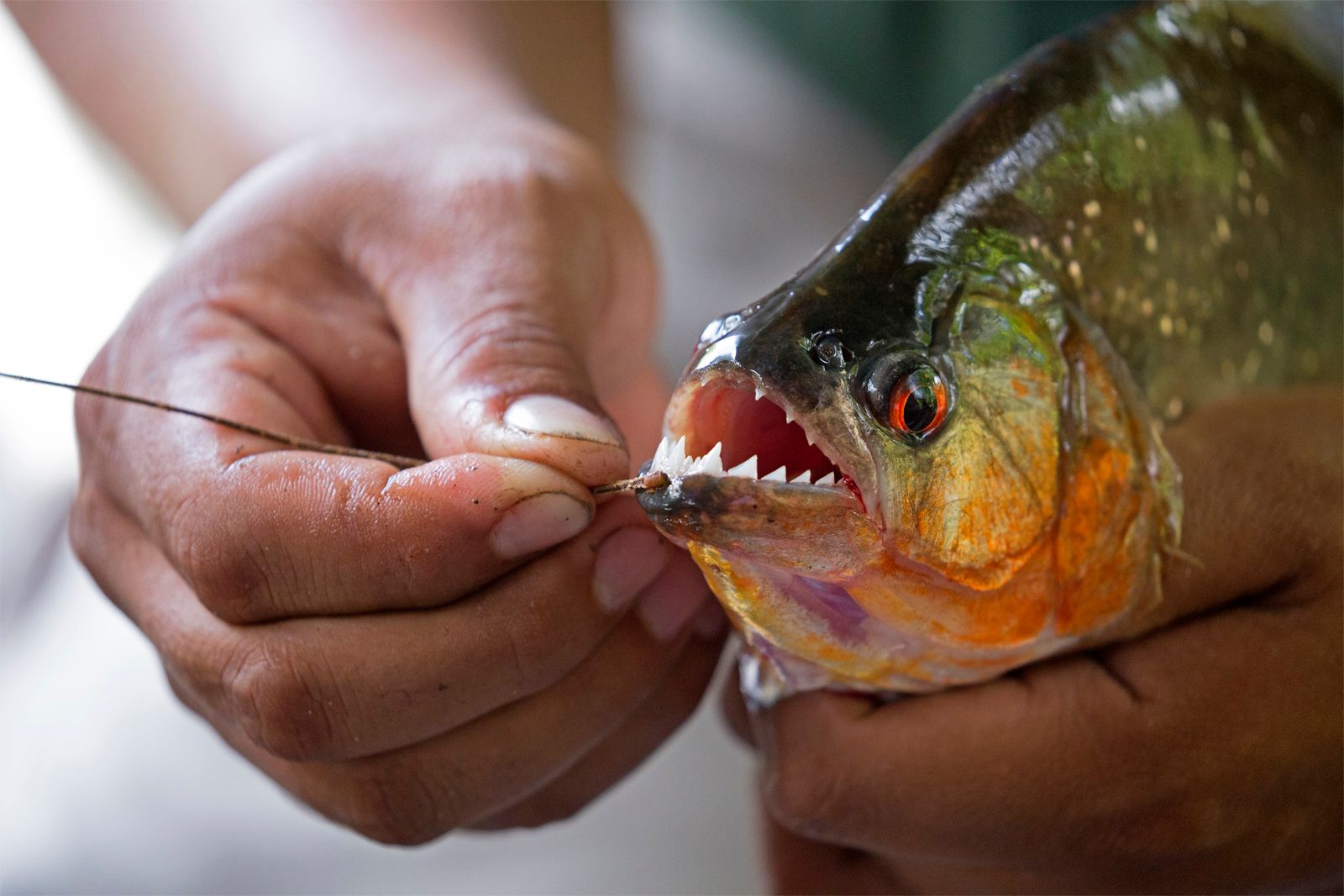
While not typically a common dish in Western countries, piranhas are sometimes consumed in South America. Piranhas are often caught in unsustainable ways, and eating them may contribute to habitat destruction and environmental degradation.
13. Rockfish
Rockfish, particularly those from the Pacific Ocean, are often caught in unsustainable ways that deplete their populations. Overfishing of rockfish harms the ecosystem and leads to a loss of biodiversity, making it a fish to avoid.
14. Grouper
Grouper, especially species like the Nassau grouper, are often overfished and endangered. The population of grouper has been drastically reduced, and eating them can contribute to their depletion. Overfishing of grouper also damages coral reefs and disrupts marine ecosystems.
Conclusion
While fish can be a nutritious part of a balanced diet, it’s important to be mindful of the species you choose. Many fish, particularly those that are high in mercury or caught through unsustainable practices, can have negative effects on both your health and the environment. By avoiding these 14 types of fish, you can make more informed choices and contribute to the preservation of marine life.
When purchasing fish, it’s a good idea to look for eco-friendly certifications such as the Marine Stewardship Council (MSC) label, which ensures the fish comes from sustainable sources. Opting for wild-caught fish and supporting sustainable fisheries can help protect both your health and the planet.
News in the same category


Whiten Teeth With Carrot Ends Brings Surprising Benefits You’ll Love

Rosemary contains a compound that can help fight Alzheimer's disease

Raw Garlic Before Bed? Here’s What It Does to Your Body!
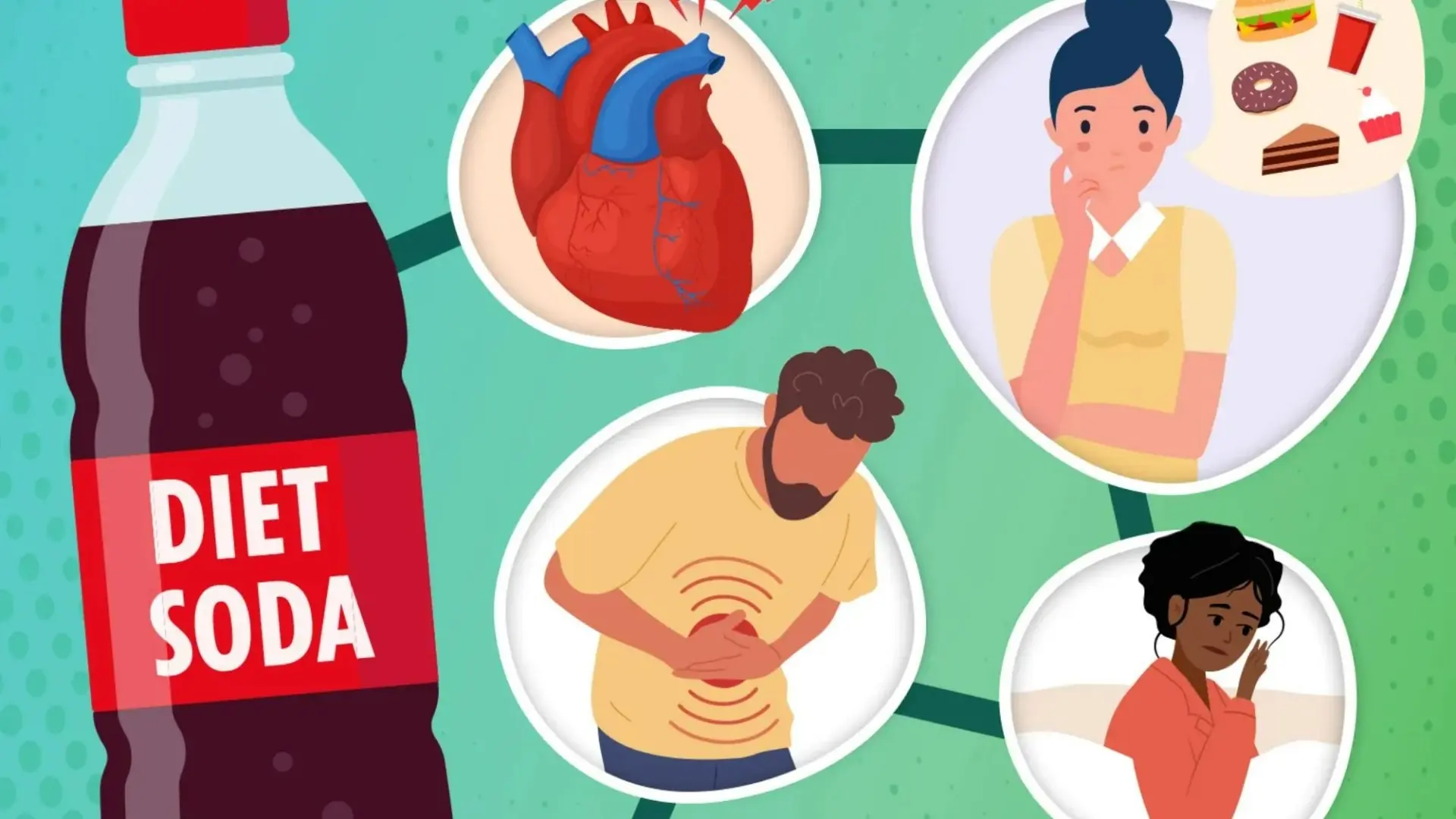
8 Detrimental Effects Soda Can Have On Your Body

20 Early Warning Signs of Cancer You Should Never Ignore
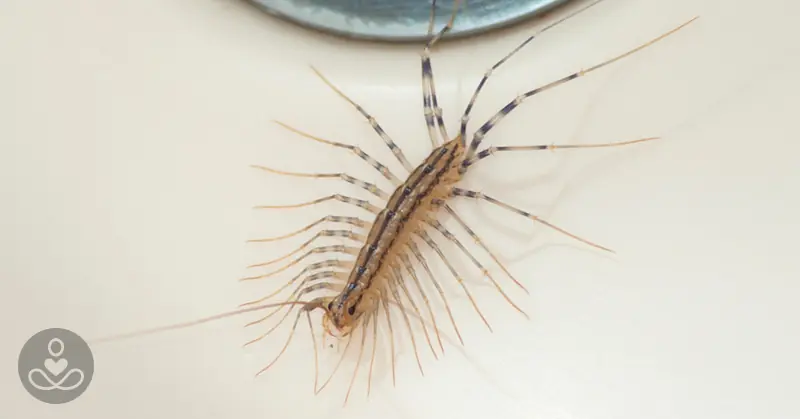
Why You Should Never Ever Kill A House Centipede If You Find One Inside Of Your Home

Why Smoking Weed at 30 Could Impact Your Future: What Science Says

Doctor warns: A common habit may double the risk of a heart attack

THIS DOUBLES Your Testosterone Naturally in 7 Days!

Euphorbia Hirta (Asthma-Plant): Ancient Remedies and Modern Applications for Health and Wellness

Doctor Warns Against This One Thing If You Wake Up at Night

Reasons You Could Have Numbness or Tingling Sensations in Your Hands

A Well-Known Shampoo Is Being Withdrawn Immediately Due To Bacteria That Can Kill One In Ten Patients

9 Reasons Why You Should Eat Okra Multiple Times a Week

What’s In Your Mouth Could Be Triggering Alzheimer’s, Scientists Say

10 Signs You're Living With Clogged Arteries

Man with severe anger issues breaks down in tears after seeing what radiologist found in scans of his brain
News Post

Jabuticaba is rich in vitamin C, which helps boost the production of white blood cells

Goldenberries (*Physalis peruviana*): A Powerhouse Superfruit for Health, Vision, and Overall Wellness

My Daughter’s Wedding Dress Arrived All Black—And It Signaled A Deeper Betrayal

A Family Secret Almost Derailed My Wedding

Eight Years Shattered: My Husband Brought Home His Pregnant Lover And I Plotted Epic Revenge

We Adopted a 4-Year-Old Girl – A Month Later, She Came to Me and Said, ‘Mommy, Don’t Trust Daddy’

My Wheelchair Broke At Lowe’s—And The Workers Did Something I’ll Never Forget

15 Incredible Benefits of Castor Leaves for Men and Women Over 30

The Day My Sister Kicked Me Out and My Father’s Final Gift Unfolded

Whiten Teeth With Carrot Ends Brings Surprising Benefits You’ll Love

Kicking seats on a flight. Not cool

My Wife Disappeared 15 Years Ago After Going Out to Buy Diapers – I Saw Her Last Week and She Said, ‘You Have to Forgive Me’

Inside Anderson Cooper’s Converted Firehouse Home Where He Lives with Kids He Shares with His Ex

A few days before graduation, I lost my parents. Then a stranger walked in.

Rosemary contains a compound that can help fight Alzheimer's disease

Raw Garlic Before Bed? Here’s What It Does to Your Body!

8 Detrimental Effects Soda Can Have On Your Body

20 Early Warning Signs of Cancer You Should Never Ignore

A Poor Boy’s Life Changes After He Pulls an Old, Rusty Chain Sticking Out of the Sand on a Remote Beach
